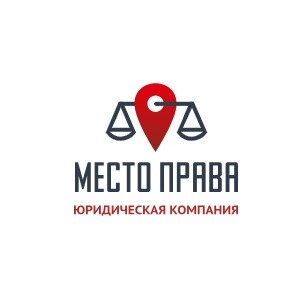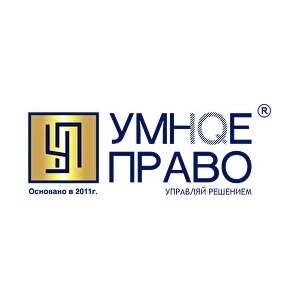Best Debt & Collection Lawyers in Omsk
Share your needs with us, get contacted by law firms.
Free. Takes 2 min.
List of the best lawyers in Omsk, Russia
About Debt & Collection Law in Omsk, Russia
Debt & Collection law in Omsk, Russia, involves the legal framework that governs how debts are collected, both from individuals and businesses. This area of law ensures that the rights of creditors are protected, while also providing safeguards against abusive practices towards debtors. Omsk, like the rest of Russia, follows federal regulations supplemented by regional rules that can have significant implications on debt collection practices. Understanding this complex legal landscape is crucial for both creditors seeking to reclaim debts and debtors navigating their financial responsibilities.
Why You May Need a Lawyer
Legal assistance in Debt & Collection can be necessary in various situations, including:
- When you, as a creditor, need to initiate legal proceedings to collect overdue payments.
- If you are a debtor facing unfair collection practices or require assistance negotiating a payment plan.
- In instances where complex legal documentation and contractual obligations are involved.
- To understand the rights and obligations that apply under Russian law specifically governing debt and collection.
- If you are involved in cross-border transactions where debts need to be recollected internationally.
Local Laws Overview
The legal framework for Debt & Collection in Omsk is largely governed by the Civil Code of the Russian Federation, along with other related statutes such as the Federal Law on Insolvency (Bankruptcy). Key aspects relevant to this field include:
- The necessity for written agreements to establish debts.
- The statute of limitations on debt claims, which is generally three years from the recognized date of default.
- Specific regulations against predatory and abusive collection practices to protect debtors.
- The establishment of debtor insolvency procedures and the role of courthouse arbitration.
- Guidelines for the enforcement of court-ordered debt recoveries by bailiffs.
Frequently Asked Questions
What constitutes legal debt collection practices in Omsk?
Legal collection practices involve communicating with debtors through authorized means, adhering to the statute of limitations, and ensuring adherence to all relevant federal and regional laws without resorting to harassment or intimidation.
Can debt collection agencies operate in Omsk?
Yes, debt collection agencies can operate, but they must comply with the regulations set out by Russian law and be appropriately registered to conduct their activities.
What should I do if I am facing harassment from creditors?
Debtors have the right to challenge unlawful collection practices. Document all interactions and seek legal advice immediately to ensure your rights are protected.
How long does a creditor have to pursue a debt in Omsk?
The standard statute of limitations is three years from the date when the creditor became aware or should have become aware of the default.
Can a debt be collected if the statute of limitations has expired?
No, once the statute of limitations has expired, creditors are generally barred from taking legal action to collect the debt.
Are there specific documents required to prove a debt?
Yes, typically a written agreement or contract specifying the debt terms is required, along with any relevant documentation evidencing the debtor's obligation to pay.
What are my options if I cannot pay my debt?
Debt restructuring or negotiation for modified payment plans can be explored, potentially with the assistance of a lawyer or financial advisor. Bankruptcy may also be considered as a last resort.
How can a lawyer help in debt collection cases?
A lawyer can provide strategic advice, represent you in court, ensure your claims are filed correctly, and negotiate settlements on your behalf.
Is it possible to negotiate with creditors directly?
Yes, many creditors are open to negotiation on payment terms to avoid lengthy legal processes, especially if a debtor proactively seeks renegotiation.
What should creditors know before filing a debt collection lawsuit?
Creditors should ensure all documentation is comprehensive, understand the borrower's financial situation, and be aware of the costs and timeframes involved in legal action.
Additional Resources
Several resources can help you navigate debt and collection issues:
- The Federal Bailiff Service of Russia, which enforces judicial decisions and provides information on debtor rights.
- Local legal aid societies that can provide assistance and resources for individuals facing financial challenges.
- Financial consulting firms specializing in debt management and recovery.
Next Steps
If you require legal assistance in Debt & Collection in Omsk, consider the following steps:
- Contact a local lawyer specializing in debt and insolvency cases to discuss your situation.
- Gather all relevant documentation, including contracts, payment records, and communication with creditors.
- Verify that any collection agency you deal with is registered and compliant with Russian law.
- Investigate potential alternative resolutions, such as mediation or negotiated settlements, with the guidance of legal counsel.
Lawzana helps you find the best lawyers and law firms in Omsk through a curated and pre-screened list of qualified legal professionals. Our platform offers rankings and detailed profiles of attorneys and law firms, allowing you to compare based on practice areas, including Debt & Collection, experience, and client feedback.
Each profile includes a description of the firm's areas of practice, client reviews, team members and partners, year of establishment, spoken languages, office locations, contact information, social media presence, and any published articles or resources. Most firms on our platform speak English and are experienced in both local and international legal matters.
Get a quote from top-rated law firms in Omsk, Russia — quickly, securely, and without unnecessary hassle.
Disclaimer:
The information provided on this page is for general informational purposes only and does not constitute legal advice. While we strive to ensure the accuracy and relevance of the content, legal information may change over time, and interpretations of the law can vary. You should always consult with a qualified legal professional for advice specific to your situation.
We disclaim all liability for actions taken or not taken based on the content of this page. If you believe any information is incorrect or outdated, please contact us, and we will review and update it where appropriate.









